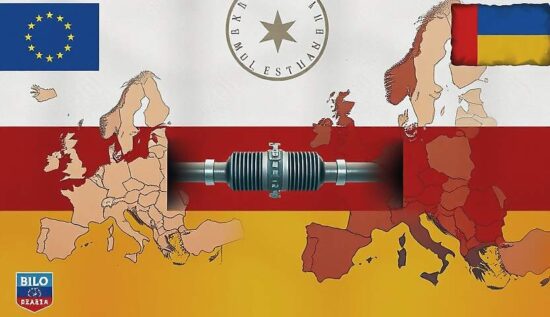The fate of the Nord Stream 2 pipeline, a project that has been in the spotlight for years, may be revived, reports the Handelsblatt, citing industry insiders and government experts. The pipeline, which is still under construction, could be used for the import of green hydrogen from Finland or even for the transport of natural gas from Russia after a potential peace agreement in Ukraine.
The decision of the Zug cantonal court in Switzerland to extend the insolvency of the insolvent Nord Stream 2 AG, a subsidiary of the Russian state-owned company Gazprom, until May 9, 2025, has caused a stir. The court cited the complex geopolitical situation and the upcoming German federal election in February 2025, which could have a significant impact on the situation of the Nord Stream 2 AG. Insiders value the new deadline as a gift to the future German government, which will have the opportunity to influence the future of Nord Stream 2.
Although the German government has denied having any plans for the future of Nord Stream 2, insiders claim that the government will not leave the pipeline’s fate to chance. Now, the government is under pressure to make a decision after a court ruling.
If a solution is not found by May 9, the company must be liquidated and a further extension is ruled out. This would mean that Gazprom, the sole owner of Nord Stream 2 AG and the five investors, including the German state-owned energy company Uniper, would lose control over the pipeline and the German taxpayer would lose a significant amount of money.
On the other hand, if a new use for Nord Stream 2 is found, it would have several advantages. Uniper and the German taxpayer would not have to write off the money and the security of the energy supply would be increased in the medium term. Additionally, Germany could thwart the plans of US businessman Stephen Lynch, who is seeking to secure the pipeline in the event of insolvency, according to the economic newspaper.
A government spokesperson stated that the government is not participating in speculation about potential buyers for Nord Stream 2. A spokesperson for the Federal Ministry of Finance, which oversees the state’s participation in Uniper, said, “We will continue to work on protecting our rights.” An Uniper spokesperson also emphasized that the company will continue to protect its interests as one of the investors.
The possibility of hydrogen production in the northern Baltic Sea region has been reported on several occasions. Now, the plans are becoming more concrete: “Germany and Finland want to advance the creation of a hydrogen import corridor for Germany and other Baltic Sea border countries and, in particular, to highlight the region’s potential for renewable energy” said a spokesperson for the Ministry of Economics.
The “Baltic Sea Hydrogen Collector” (BHC) is a project being worked on by the three Scandinavian companies Copenhagen Infrastructure Partners (CIP), Nordion Energi and Gasgrid Finland. From the circle of the consortium, it is said that a complete new build of the pipeline would be “extremely expensive” and a return to the Nord Stream 2 pipeline would be sensible. It seems hard to understand why the pipes on the sea floor should rot. “Nobody can have an interest in a ruin on the sea floor” confirms the view of Jacopo Pepe, energy expert at the Stiftung Wissenschaft und Politik (SWP).
The technical hurdles for converting the pipeline to transport hydrogen are low, according to experts, who point to the East-West Gas Pipeline, which was built with the remaining pipes of the Nord Stream 2 project. This pipeline is designed to be able to transport hydrogen and the same is possible with Nord Stream 2.
Looking at the potential use of the pipeline, the spokesperson of the Federal Ministry of Economics said that the government “is not conducting any talks about this, not even with Russia.” In this sense, “the question of using the pipes is not currently on the table.” Perhaps the future German government could take up this issue. In EU circles, the question of resuming gas deliveries from Russia is still not off the table, on the contrary: with the prospect of potential peace talks in the Ukraine conflict, the demand for resumed gas deliveries is growing.





